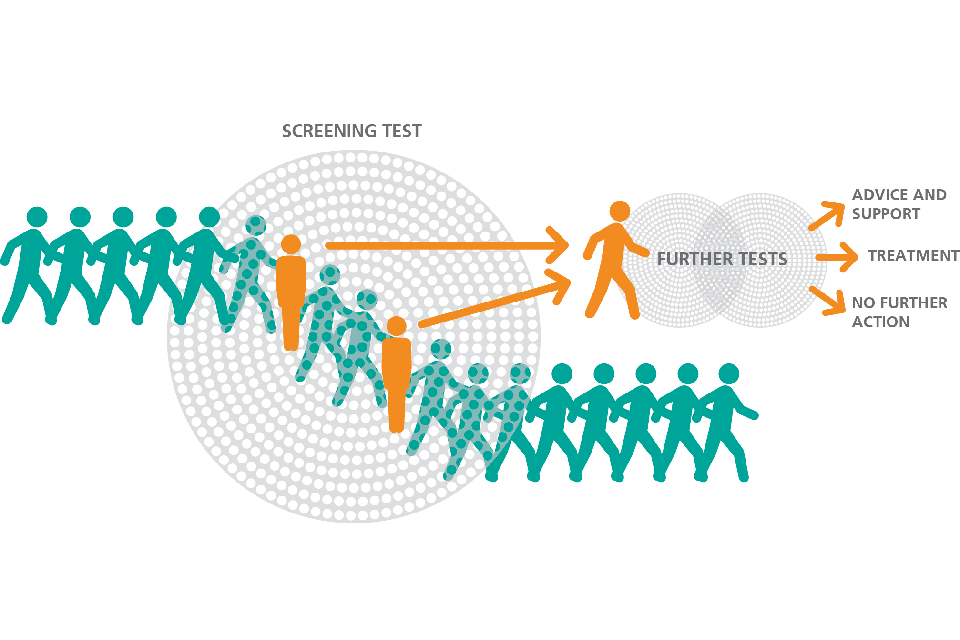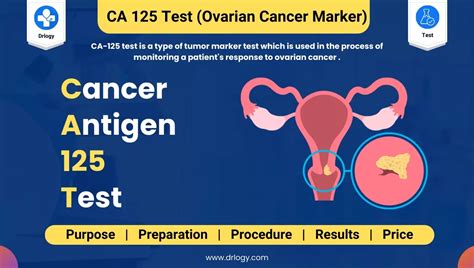Cancer Antigen 125, commonly referred to as CA 125, is a protein that can be found on the surface of certain cells in the body, including ovarian cancer cells. The CA 125 test is a blood test used to measure the level of this protein in the blood. Elevated levels of CA 125 can indicate the presence of ovarian cancer, but it is essential to understand that this test is not exclusive to cancer and can have various interpretations.
What does the CA 125 test measure?
The CA 125 test measures the amount of the CA 125 protein in the blood. In healthy individuals, the level of CA 125 is typically low. However, in people with ovarian cancer, the level of CA 125 can be elevated due to the release of this protein from the cancer cells into the bloodstream. The test is usually performed to:
- Monitor ovarian cancer treatment: The CA 125 test can help track the effectiveness of treatment for ovarian cancer. A decrease in CA 125 levels may indicate that the treatment is working, while an increase may suggest that the cancer is not responding to treatment.
- Detect recurrence: The test can also be used to monitor for recurrence of ovarian cancer in individuals who have already been treated for the disease.
- Screen for ovarian cancer: Although not widely recommended for routine screening, the CA 125 test may be used in combination with other tests, such as transvaginal ultrasound, to screen for ovarian cancer in individuals with a high risk of developing the disease.
Interpreting CA 125 test results
The interpretation of CA 125 test results can be complex and requires careful consideration of various factors. Here are some possible scenarios:
- Normal levels: A CA 125 level of less than 35 units per milliliter (U/mL) is generally considered normal. However, it is essential to note that some individuals with ovarian cancer may have normal CA 125 levels, while others without cancer may have elevated levels.
- Elevated levels: A CA 125 level above 35 U/mL may indicate the presence of ovarian cancer, but it can also be elevated in various non-cancerous conditions, such as:
- Pelvic inflammatory disease
- Endometriosis
- Uterine fibroids
- Pregnancy
- Menstruation
- Liver disease
- Other cancers, such as breast, lung, or pancreatic cancer
What to do if your CA 125 levels are elevated?
If your CA 125 levels are elevated, it is essential to consult with your healthcare provider to determine the cause of the elevation. Your provider may recommend additional tests, such as:
- Imaging tests: Transvaginal ultrasound, computed tomography (CT) scan, or magnetic resonance imaging (MRI) to visualize the ovaries and surrounding tissues.
- Biopsy: A tissue sample may be taken from the ovary or other affected areas to examine for cancer cells.
- Other blood tests: Additional blood tests may be performed to rule out other conditions that can cause elevated CA 125 levels.
Limitations of the CA 125 test
While the CA 125 test can be a useful tool in monitoring and detecting ovarian cancer, it is essential to understand its limitations:
- False negatives: Some individuals with ovarian cancer may have normal CA 125 levels, which can lead to a delay in diagnosis.
- False positives: Elevated CA 125 levels can be caused by non-cancerous conditions, leading to unnecessary anxiety and further testing.
- Lack of specificity: The CA 125 test is not specific to ovarian cancer and can be elevated in various other conditions.
Conclusion
The CA 125 test is a valuable tool in the management and detection of ovarian cancer, but it should be interpreted with caution and in conjunction with other tests and clinical evaluation. If you have concerns about your CA 125 test results or ovarian cancer, it is essential to consult with your healthcare provider to determine the best course of action.
What is the normal range for CA 125 levels?
+A CA 125 level of less than 35 units per milliliter (U/mL) is generally considered normal.
Can elevated CA 125 levels be caused by conditions other than ovarian cancer?
+Yes, elevated CA 125 levels can be caused by various non-cancerous conditions, such as pelvic inflammatory disease, endometriosis, uterine fibroids, pregnancy, menstruation, liver disease, and other cancers.
What additional tests may be recommended if CA 125 levels are elevated?
+Your healthcare provider may recommend imaging tests, such as transvaginal ultrasound, CT scan, or MRI, as well as biopsy and other blood tests to determine the cause of the elevation.
In conclusion, the CA 125 test is a complex tool that requires careful interpretation and consideration of various factors. By understanding the limitations and potential causes of elevated CA 125 levels, individuals can make informed decisions about their health and work closely with their healthcare providers to determine the best course of action.
Pros and Cons of the CA 125 Test

- Pros: The CA 125 test can help monitor ovarian cancer treatment, detect recurrence, and screen for ovarian cancer in high-risk individuals.
- Cons: The test has limitations, including false negatives, false positives, and lack of specificity, which can lead to unnecessary anxiety and further testing.
By weighing the pros and cons of the CA 125 test, individuals can make informed decisions about their health and work closely with their healthcare providers to determine the best course of action. It is essential to remember that the CA 125 test is just one tool in the management and detection of ovarian cancer, and it should be used in conjunction with other tests and clinical evaluation.
According to the American Cancer Society, the CA 125 test is not recommended as a screening test for ovarian cancer in women with average risk. However, it may be used in combination with other tests, such as transvaginal ultrasound, to screen for ovarian cancer in individuals with a high risk of developing the disease.
In the end, it is crucial to consult with your healthcare provider to determine the best course of action and to understand the implications of your CA 125 test results. By working closely with your healthcare provider and staying informed, you can make the best decisions for your health and wellbeing.
Step-by-Step Guide to Understanding Your CA 125 Test Results

- Consult with your healthcare provider to determine the cause of elevated CA 125 levels.
- Undergo additional testing, such as imaging tests or biopsy, to determine the cause of the elevation.
- Work closely with your healthcare provider to develop a treatment plan, if necessary.



